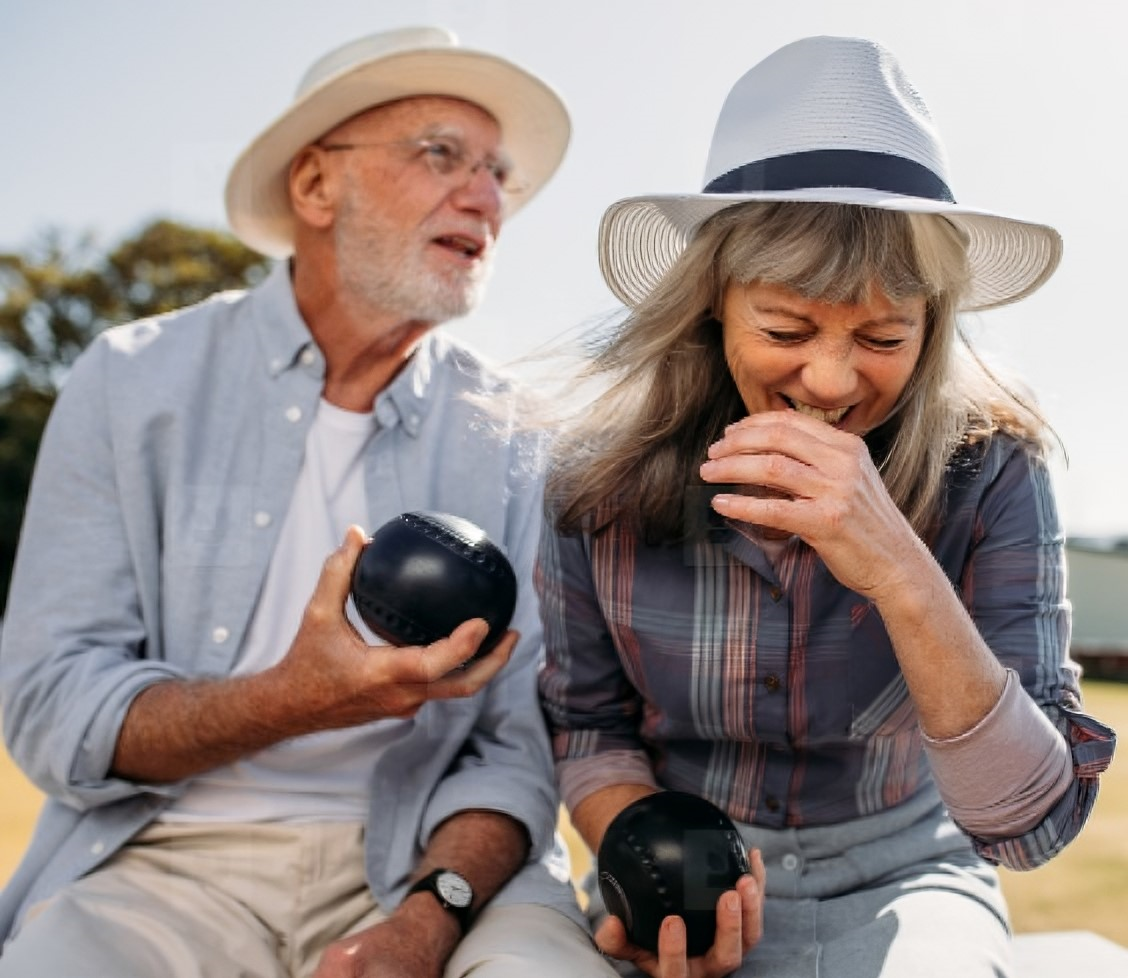It’s a common occurrence to see our social circles shrink as we age. According to a study conducted by Aged Care Research & Industry Innovation Australia, around 1 in 5 older Australians are socially isolated. This rises to a third of older people living in residential aged care.
These stats are not surprising. Post retirement many people find themselves spending more time with partners than coworkers. Children have often moved away, and friendship circles tighten.
A smaller social circle isn’t inherently negative as research has shown that as we age, we value quality of connection over quantity however in some cases smaller social circles turn to increased solitude which eventually leads to isolation. The absence of social connections can then pave the way for loneliness, which is linked to both reduced well-being and premature mortality in older adults.
Understanding Loneliness
Loneliness isn’t just about physical solitude; it’s often accompanied by a mix of emotions. Knowing that loneliness often comes with many ‘layers’ is important when working towards meaningful solutions. For example, seniors may be grappling with retirement, loss of loved ones, limited mobility or decrease in cognitive function or overall health. Recognising the challenges that each individual is facing can help in tailoring solutions that make a difference.
16 Ways for Seniors to Foster Connections
There are many different approaches to tackling social isolation. Whether you’re an elderly person struggling with loneliness or someone who is in touch with or caring for the elderly here are 16 ways to foster connections and enjoy a renewed sense of purpose:
1. Embrace Technology
Embrace technology to connect with friends and family. Video calls, social media, and online communities can provide a sense of connection from the comfort of home. Online classes and workshops are another great way to not only stimulate the mind but also interact with others.
2. Home Based Hobbies
Pursue hobbies or interests that can be enjoyed at home. Whether it’s reading, cooking, or crafting, engaging in activities provides a sense of purpose and joy.
3. Get To Know Your Neighbours
Take the time to get to know your neighbours. You’ll often be surprised at how quickly bonds can form and just how many good people live close who are happy to stop by for a chat or to lend a helping hand.
4. Meal on Wheels
Meals on Wheels not only delivers nutritious meals but also provides a chance for social interaction during meal deliveries.
5. Senior Companionship Programs
Look into local programs that offer companionship services for seniors. Screened volunteers can provide company and assistance with daily activities. One such program is the Aged Care Volunteer Visitors Scheme, funded by the Australian Government.
6. Local Community Support
Connect with local community centres or councils for information on programs catering to seniors such as home visits or transportation services.
7. Gardening and Nature
If possible, create a small garden space at home. Spending time with plants and nature, even in a limited capacity, can have therapeutic effects.
8. Helplines and Hotlines
Become familiar with helplines available for emotional and social support. Sometimes a friendly voice on the other end of the line can make a huge difference. One such service in Australia is Friendline – 1800 424 287. Friendline offers older Australians an opportunity to call and have a free, anonymous, friendly chat with a volunteer over the phone.
9. Telehealth Services
Access telehealth services for virtual medical consultations. Often regular check-ins can provide a sense of connection and at the same time address any health concerns.
10. Pet Companionship
Consider adopting a pet for companionship. Pets provide unconditional love and can significantly reduce feelings of loneliness.
11. Senior Exercise Programs
Many local councils and community centres offer exercise programs tailored for seniors. These classes provide physical activity and opportunities to meet others.
12. Local Senior Citizens Programs
Consider joining your local Senior Citizens. It’s a great way to meet other people just like you and forge new friendships.
13. Volunteering
Volunteering not only helps others but also provides opportunities for social interaction and a sense of purpose. It could be at a local library, hospital, aged care facility, shelter, or any organisation that resonates.
14. Local Clubs & Classes
Consider joining a local club or class based on your hobbies or interests – whether it’s a book club, dance group, painting, or cooking class. You’ll not only do something you enjoy but get out of the house and meet like-minded individuals.
15. Local Religious/Spiritual Groups
Connecting with others who share similar religious or spiritual beliefs can provide a sense of community and belonging. Consider attending a congregation or meet-up.
16. Pen Pals
The concept of pen pals may have evolved with technology but whether it’s by email, video chat or traditional letters, connecting with a pen pal can be a rewarding experience. Consider also intergenerational programs where you correspond with younger individuals.
What Can Be Funded Through a Home Care Package?
When it comes to addressing loneliness and social isolation there are a number of supports that can be funded through a Home Care Package. These include:
- Social Support Services: This can include companionship, assistance with attending social events, or participation in community activities.
- Transport Assistance: Funding can be allocated for transportation to social activities, appointments, or community groups.
- Allied Health Services: Depending on the package level, funding might cover services such as physiotherapy, occupational therapy, or counseling aimed at addressing loneliness and improving social engagement.
- Personal Care: While not directly addressing loneliness, personal care services (like grooming and hygiene assistance) can indirectly support an individual’s confidence and ability to engage socially.
- Home Modifications or Aids: Sometimes, modifications or aids can be provided to facilitate social participation, like grab rails, ramps, or assistive devices.
- Meal Services: Support for meal preparation or delivery can indirectly support social interactions if meals are shared with others or if it frees up time to engage in social activities.
We recommend chatting with your Care Advisor to explore what options may be available to you.
The Path Forward
Combating loneliness is a collective effort. It’s about building a community where elderly Australians feel valued, engaged, and connected. By sharing the resources and initiatives available we can collectively contribute to ensure that no one feels alone on this journey.
Useful Resources
- OPAN – Offers resources, advocacy, and community programs for older Australians.
- Aged Care Volunteer Visitors Scheme (ACVVS) – Matches volunteers to older Australians to help reduce social isolation.
- Friendline – Call for a friendly chat with a volunteer over the phone.
- My Aged Care – For accessing a range of aged care services and support.
- Beyond Blue – Mental health support for all Australians
- Local Councils – Most offer services and support to help older people stay active and connected in their local communities.




